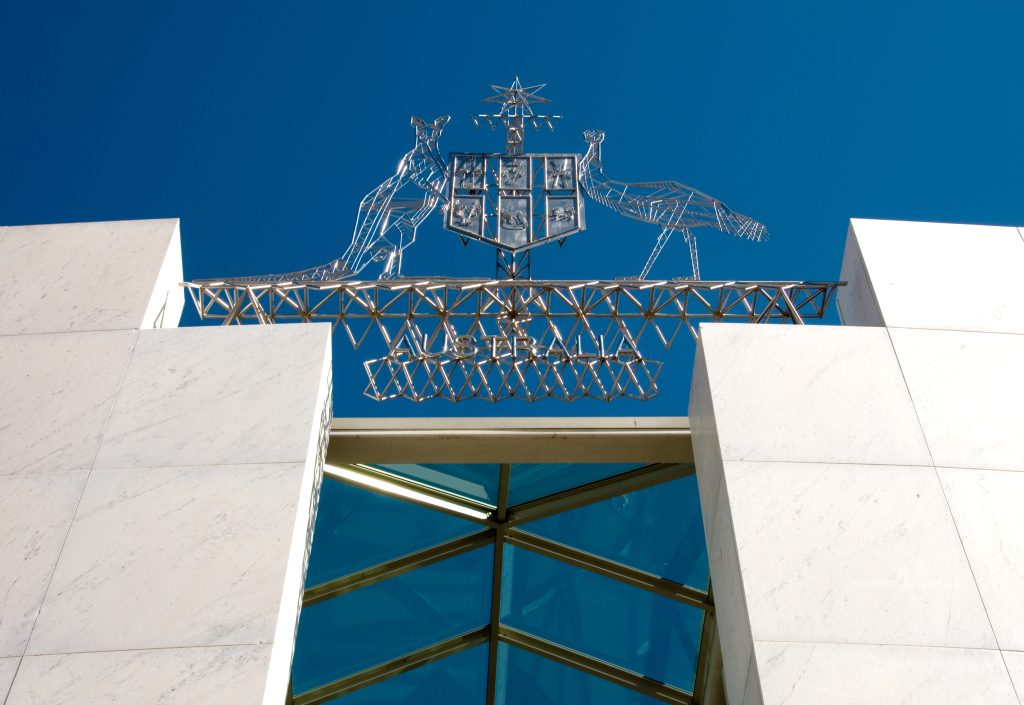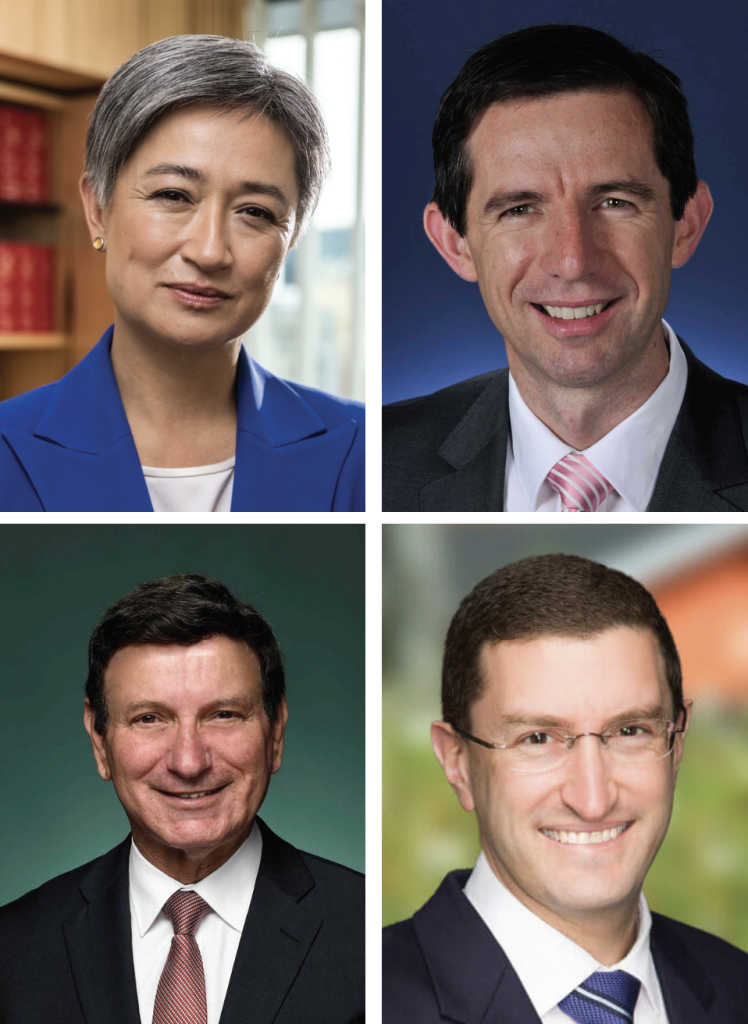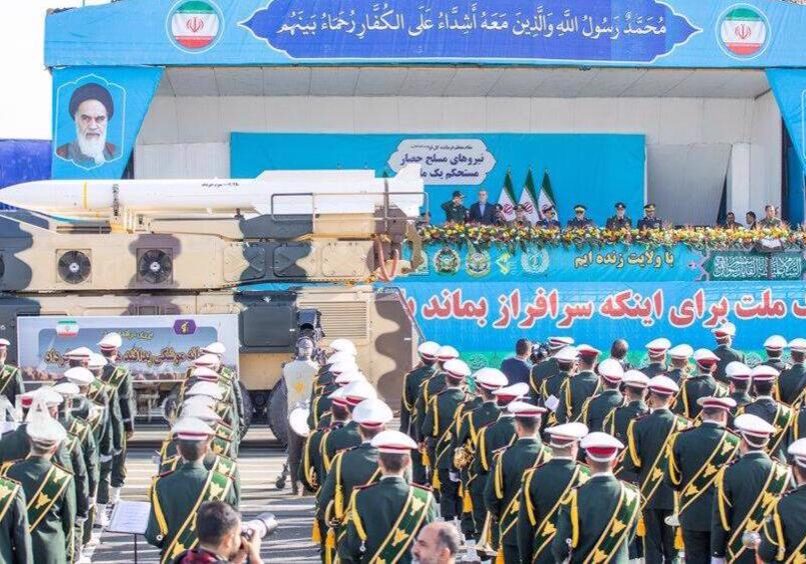Australia/Israel Review
Jerusalem comes to Canberra
Nov 28, 2022 | Jamie Hyams

The October 18 Australian Government decision to no longer recognise west Jerusalem as Israel’s capital attracted more debate and comment in Federal Parliament than Israel has received for a very long time, maybe ever. It took place in many forms in both houses, starting with a rush on Oct. 25, the first day Parliament sat after the announcement.
In Question Time, Opposition Leader Peter Dutton (Lib., Dickson) asked, “…I refer to the decision taken… on a Jewish holy day to stop recognising Israel’s capital of west Jerusalem…which deeply offended our closest ally in the Middle East and the Jewish community in Australia but which was praised by two violent terrorist groups. Has the Prime Minister spoken to or communicated with the Israeli Prime Minister and offered an apology?”
Prime Minister Anthony Albanese (ALP, Grayndler) replied, “…We have reaffirmed Australia’s previous, longstanding and bipartisan position that Jerusalem is a final status issue that should be resolved as part of peace negotiations… the same position… held by the United Kingdom, France, Germany, Spain, Japan, South Korea, Singapore, New Zealand and Canada… [and was held by] John Howard [and] Tony Abbott…” before accusing the previous government of recognising west Jerusalem for political advantage in the context of the Wentworth by-election.
That day, in Senate Question Time, Shadow Minister for Foreign Affairs Senator Simon Birmingham (Lib., SA) said it “was announced with initial denials by the minister’s office on the Jewish holy day of Simchat Torah and just two weeks out from polling day in the Israeli elections,” and asked, “The Prime Minister has described as ‘deeply regrettable’ the Government’s handling of the announcement. He also said that it could have been done better and… caused distress… has the Prime Minister spoken with Israeli Prime Minister Lapid to apologise for the ham-fisted handling of this matter?”

Some of the prominent players in the recent debate include (left to right, top to bottom) Foreign Minister Senator Penny Wong, Shadow Foreign Minister Simon Birmingham, ALP backbencher Tony Zappia and Shadow Attorney-General Julian Leeser
Foreign Minister Senator Penny Wong (ALP, SA) replied, acknowledging “there are few issues that are more central for members of the Jewish community than the status of Jerusalem,” but adding, “What the Government has done is reaffirm Australia’s previous longstanding and bipartisan position… that Jerusalem is a final status issue that should be resolved as part of any peace negotiations” and that “this has been Australia’s position for decades,” before accusing the previous government of changing Australia’s stance for political advantage and saying that the ALP had said at that time it would reverse the decision if it won government.
Following Question Time, senators are able to respond to answers. Senator Matt O’Sullivan (Lib., WA) noted, “The Australia-Israel bilateral relationship has been one of the more important pillars in Australia’s international relations since… the Second World War.” He urged “the Albanese Government to apologise to Israeli Prime Minister Lapid and undo this unwise decision.”
Similarly, Shadow Assistant Minister for Foreign Affairs Senator Claire Chandler (Lib., Tas.) said, “The idea that Australia should reject Israel’s acknowledgement of its own capital is wrong. It does not assist or help the peace process, and it diminishes Australia.”
Later that afternoon, in the House of Representatives, Shadow Minister for Science, Arts, Government Services and the Digital Economy Paul Fletcher (Lib., Bradfield) moved that the issue be discussed as a matter of public importance, which was approved. This allowed debate on the issue. Coalition speakers condemned the decision.
Mr Fletcher described Israel as “a beacon of freedom around the world.” He said the Coalition’s “recognition of west Jerusalem did not in any way pre-empt peace negotiations or undermine prospects of a peaceful settlement,” and that it had “followed a review by the secretaries of the departments of Prime Minister and Cabinet, Foreign Affairs and Trade, Defence, and Home Affairs which included consultation with community representatives, former heads of relevant agencies and Australia’s international allies and partners.”
Shadow Attorney-General and Shadow Minister for Indigenous Australians Julian Leeser (Lib., Berowra) said, “West Jerusalem is Israel’s capital. Its parliament is there, its Supreme Court is there, the President lives there – it looks like the capital city of any other country. Yet Labor is lending credence to the fiction that it’s not.” He concluded, “West Jerusalem is territory that has not been disputed and is not disputed… Israel is a sovereign nation with a right to determine where its capital lies.”
Shadow Assistant Treasurer Stuart Robert (Lib., Fadden), Scott Buchholz (Lib., Wright) and Keith Wolahan (Lib., Menzies) also spoke against the decision.
Those on the Government side mainly repeated the points made by Mr Albanese and Senator Wong in their answers in Question Time, although some also said that the fact Australia’s embassy was not moved proved the previous government’s initial announcement that it was reviewing the site was a political stunt.
For example, Assistant Foreign Minister Tim Watts (ALP, Gellibrand), stated, “there can be no lasting peace that does not address the status of Jerusalem, and the Albanese Government will not undermine that approach,” and mentioned many past Australian governments that had not recognised Jerusalem as Israel’s capital.
Minister for Early Childhood Education and Youth Anne Aly (ALP, Cowan), Joanne Ryan (ALP, Lalor), Josh Burns (ALP, Macnamara) and Peter Khalil (ALP, Wills) spoke in similar terms, although Mr Burns also said that for people in his electorate, “to understand Jerusalem as the capital is as simple as us understanding Canberra as [our] capital, and it would be like someone telling us that Surfers Paradise was the capital instead of Canberra – something that doesn’t really make sense.”
Still on Oct. 25, in the Senate, Simon Birmingham requested that “The need for the Senate to reaffirm the importance of consultation and careful consideration when dealing with complex and sensitive foreign affairs matters, and the need for Prime Minister Albanese to apologise to Israeli Prime Minister Lapid for the hasty and careless manner in which the [Jerusalem] decision… was made,” be considered as a matter of urgency. This was allowed.
In his comments, he stated, that, contrary to ALP assurances before the election that “on the question of Israel, it didn’t matter which way [people] voted… the Albanese Government has taken… multiple steps… of change of policy.”
Assistant Minister for Trade and Manufacturing Senator Tim Ayres (ALP, NSW) countered that “There was nothing hasty, careless or surprising about Senator Wong’s announcement last week. When the Morrison Government announced its position in 2018, Senator Wong made our position very clear.”
Greens Foreign Affairs Spokesman Senator Jordon Steele-John (WA) stated, “… Amnesty International, Human Rights Watch and other groups have concluded that the Israeli government… is guilty of the crime of apartheid. Following the decision… we are calling on the Federal Government… to recognise the self-determination and statehood of Palestinians and push to ensure an end to the Israeli occupation; to halt military cooperation and military trade with the State of Israel…”
Senator David Fawcett (Lib., SA) said that even for people who say we should go back to the pre-1967 boundaries, “West Jerusalem is very much the territory that Israel has always controlled and will continue to control,” adding that the Abraham Accords showed there could be peace without a final settlement.
Senator Deborah O’Neill (ALP, NSW) said, “I particularly want to say as Chair of the Parliamentary Friends of Israel that I know how deeply the attachment to Jerusalem is felt by Jewish people, who, in the immortal words of Chaim Weizmann, lived in Jerusalem while London was still a marsh,” before adding it was therefore to the shame of the Coalition that it had politicised the issue.
Senator Malcolm Roberts (One Nation, Qld) said, “One Nation considers it the responsibility of the Israeli government to decide the location of Israel’s capital city, not the Australian government.”
Greens Deputy Leader Senator Mehreen Faruqi (NSW) said, “We need now to move forward with an approach that recognises the brutality and horror of the occupation and makes Australia an effective and impassioned supporter of Palestinian rights.”
Senator Andrew Bragg (Lib., NSW) said, “…the historical and contemporary reality is that Jerusalem is the capital of Israel. For anyone who has visited the State of Israel, that would be… obvious.”
The motion was defeated 33 to 29. All ALP and Greens senators present and Senator David Pocock (Ind., ACT) voted against, while all other senators present voted in favour.
On Oct. 26 Senator Ralph Babet (UAP, Vic.) made a statement, saying, “Every nation has the right to determine its own capital, and making an exception of Israel is discriminatory… West Jerusalem… is the seat of its president, its parliament and its Supreme Court. It is the home of national monuments.”
On Oct. 28, in the Budget Estimates hearing in the Senate Finance and Public Administration Committee, Senator Birmingham questioned at length whether Mr Albanese had spoken to his Israeli counterpart about the decision, and also the process leading to it. Senator Wong and public servants answered that Senator Wong had engaged with the Israeli ambassador, that it was a decision of cabinet and that DFAT had handled the matter.
On Nov. 7, Mr Leeser moved a motion that the House:
“(1) notes that:
(a) Israel, as a sovereign state, is free to decide its own capital…
(b) …Jerusalem…has been the seat of government of Israel since 1950;
(2) recognises that…West Jerusalem:
(a) has been part of Israel’s sovereign territory since the state was established in 1948…
(b) is therefore outside the scope of… UN resolutions since 1967…and
(c) has never been the subject of peace negotiations…;
(3) further notes that:
(a) Australia’s recognition of West Jerusalem as Israel’s capital in 2018 did not… pre-empt the outcome of peace negotiations, or undermine the prospects of achieving a peaceful settlement… based on the UN-endorsed principle of two states for two peoples; and…
(4) calls on the Government to:
(a) reverse its recent decision…”
It was seconded by Aaron Violi (Lib., Casey) who reserved his right to speak.
Opposing the motion, Susan Templeman (ALP, Macquarie) referred to “those who are suffering the consequences of a system that divides and segregates people depending on whether they’re Jewish or Muslim,” a false and offensive slur against Israel. She also mentioned that “2022 is looking to be the deadliest year for Palestinians living in the West Bank since the UN began keeping records… 17 years ago,” without mentioning the surge in Palestinian terrorism that led to this increase.
Mr Leeser was joined in speaking for the motion by Mr Fletcher and by Alex Hawke (Lib., Mitchell), who said, “From any cursory examination of Middle Eastern history, people understand why the issue of Jerusalem is so important to the Jewish people and why it will always be central to the Jewish religion and… Israel.”
Tony Zappia (ALP, Makin) showed he didn’t understand the history or his own party’s policy, saying previous governments “have consistently accepted that Tel Aviv is the capital of Israel and that that’s where our embassy should be.” In fact, neither previous governments, nor the current one, have said Tel Aviv is the capital (and it would be incredibly insulting for a government to nominate for another country where its capital is) – they have just not recognised that Jerusalem is the capital. His conclusion was even more confused, referring to “Labor’s decision… to recognise Tel Aviv as the capital of Jerusalem.”
Mike Freedlander (ALP, Macarthur) said, “Israel is an outstanding liberal democracy in the Middle East,” but strongly defended the Government’s decision.
Allegra Spender (Ind., Wentworth) supported the motion, saying the decision “ignores the fact that west Jerusalem has never been contested in any peace negotiations, and [the decision] has undermined our ability to play a constructive role in supporting a peaceful two-state resolution…”
The matter was then suspended before going to a vote.
On Nov. 10, Michelle Ananda-Rajah (ALP, Higgins) made a statement, saying, “The… Jewish diaspora… are anchored to Israel. If Israel is the homeland, then Jerusalem is its beating heart… My Jewish constituents are hurt following the announcement… Falling on a Jewish holiday only added insult to injury, for which I am sorry.” She also attacked antisemitism, adding, “The teaching of the IHRA definition of antisemitism in our workplaces, schools, universities and sporting clubs is a good place to start,” and said she “riles” at the description of Israel as apartheid. She did, however, support the Government’s position.
Also on Nov. 10, in Budget Estimates hearings in the Senate Standing Committee on Foreign Affairs, Defence and Trade, Senator Birmingham’s questions included querying what led to the previous change on the DFAT website that precipitated the Government to take its decision on Jerusalem. Senator Wong stonewalled, saying, “a mistake was made. I don’t intend… to start pointing the finger of blame. I took responsibility as minister and I moved to ensure there was clarity around Australia’s position.” She added, “I’ve publicly and privately said that the timing of this announcement falling… on Simchat Torah was deeply regrettable.”
No doubt many feel that not only the timing, but the decision itself was “deeply regrettable”. However, it is pleasing that the Coalition was so focussed on holding the Government to account, and that the Government at least appreciated the importance of this issue enough to be willing to debate it.
Tags: Australia, Australian politics, Israel, Jerusalem






